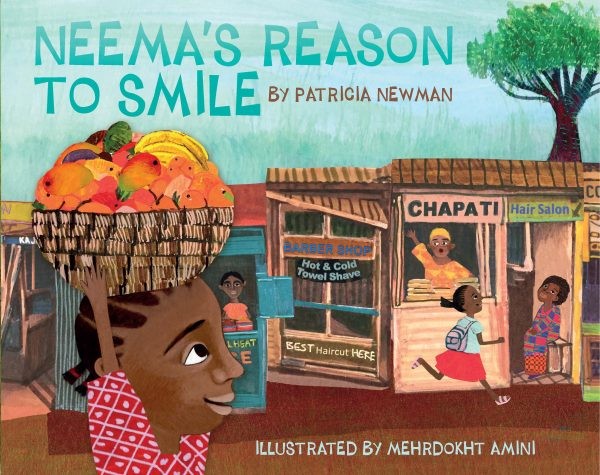A new lunch box and a notebook marked the beginning of every school year for me and I carried on the tradition with my kids. In the US, the first day of school is a common rite of passage. So it may surprise you to learn that because of poverty, war, and violence, 263 million children around the world do not attend school. [1]
When a New York librarian contacted me about a school in Kenya that addressed equal access to education, I knew I had to act. I wrote Neema’s Reason to Smile, a picture book about a Kenyan girl who cannot attend school, to emphasize that the lack of access to education is not a “poor” problem, it’s everyone’s problem.

Raising global citizens
Our world is smaller than ever because of technology and air travel. We Skype friends and family across time zones. Airplanes carries us to distant continents. Social media keeps our thumbs on the pulse of world news as it happens. But according to Lord Melbourne, Winston Churchill, Teddy Roosevelt, Franklin Roosevelt (and Spider-Man’s Uncle Ben), with great power comes great responsibility.
Education gives us the power to be proactive and foster skills and attitudes that lead to a sustainable future for the world. We as global citizens will, therefore, also benefit from finding a way to educate the world’s 263 million uneducated children. Your children raised as global citizens now will be the thinkers and changemakers of tomorrow. But first you, as parents, need to start the conversation.
Starting the conversation
Model inclusive behavior for your kids. We all look at the world through our own lens, but the lens widens as we mature to include more diverse experiences, people, cultures, and viewpoints. The more experiences our children have, the more they will understand and empathize with people of other backgrounds. One of the hidden agendas in Neema’s Reason to Smile (and my environmental titles) is to empower kids to see the adults they’d like to become. Below are four ways to start:
- Launch an Acts of Kindness Campaign. To become global citizens, children have to first become model citizens of their own world. Brainstorm acts of kindness with your kids, and then chart their successes. As parents, we want to develop our kids’ pay-it-forward mentality.
- Support a school for at-risk kids either in your hometown or overseas. For example, sixth grade teacher Debbie Cain has developed a writing unit on social issues. As part of the unit, the students at Roland A. Chatterton School in Merrick, New York raise money to sponsor Reagan, a student at the Jambo Jipya School in Mtwapa, Kenya—the real-life school featured in Neema’s Reason to Smile. As one sixth grade class graduates the next class assumes responsibility for Reagan’s yearly tuition and board.
- Show kids their voices matter. Introduce your kids to child activists. Malala Yousafzai, a Pakistani girl survived an attack by the Taliban. She started an international fund to support girls’ education and won a Nobel Peace Prize for her efforts. Mariah Nablo saves mountain gorillas by recycling cell phones. Cyberspace is filled with inspiring stories of kids making a difference. Your kids could be among them.
- Read a variety of fiction and nonfiction books about equal access to education. Talk to your kids about the similarities and differences between their school and the schools in the following books. Ask them why the differences exist. Discuss the fact that taxes pay for many services we enjoy, such as free public schools.
FICTION
- Neema’s Reason to Smile by Patricia Newman, illustrated by Mehrdokht Amini
- Yasmin’s Hammer by Ann Malaspina, illustrated by Doug Chayka
- Nasreen’s Secret School written and illustrated by Jeanette Winter
- Razia’s Ray of Hope: One Girl's Dream of an Education by Elizabeth Suneby, illustrated by Suana Verelst
NONFICTION
- Girl Rising: Changing the World One Girl at a Time by Tanya Lee Stone in association with Girl Rising
- The Story Of Ruby Bridges by Robert Coles, illustrated by George Ford
- She Persisted by Chelsea Clinton, illustrated by Alexandra Boiger
- Malala: Activist for Girls' Education by Raphaële Frier, illustrated by Aurélia Fronty
[1] http://uis.unesco.org/en/topic/out-school-children-and-youth
This post comes from the TODAY Parenting Team community, where all members are welcome to post and discuss parenting solutions. Learn more and join us! Because we're all in this together.
